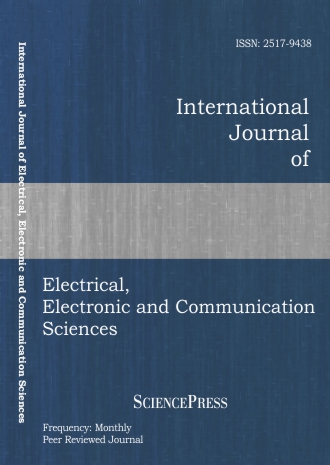
Scholarly
Volume:2, Issue: 12, 2008 Page No: 2893 - 2899
International Journal of Electrical, Electronic and Communication Sciences
ISSN: 2517-9438
1718 Downloads
An Approach for Reducing the End-to-end Delay and Increasing Network Lifetime in Mobile Adhoc Networks
Mobile adhoc network (MANET) is a collection of mobile devices which form a communication network with no preexisting wiring or infrastructure. Multiple routing protocols have been developed for MANETs. As MANETs gain popularity, their need to support real time applications is growing as well. Such applications have stringent quality of service (QoS) requirements such as throughput, end-to-end delay, and energy. Due to dynamic topology and bandwidth constraint supporting QoS is a challenging task. QoS aware routing is an important building block for QoS support. The primary goal of the QoS aware protocol is to determine the path from source to destination that satisfies the QoS requirements. This paper proposes a new energy and delay aware protocol called energy and delay aware TORA (EDTORA) based on extension of Temporally Ordered Routing Protocol (TORA).Energy and delay verifications of query packet have been done in each node. Simulation results show that the proposed protocol has a higher performance than TORA in terms of network lifetime, packet delivery ratio and end-to-end delay.
Authors:
Keywords:
References:
[1] V.D.Park and M.S.Corson. "A highly adaptive distributed routing